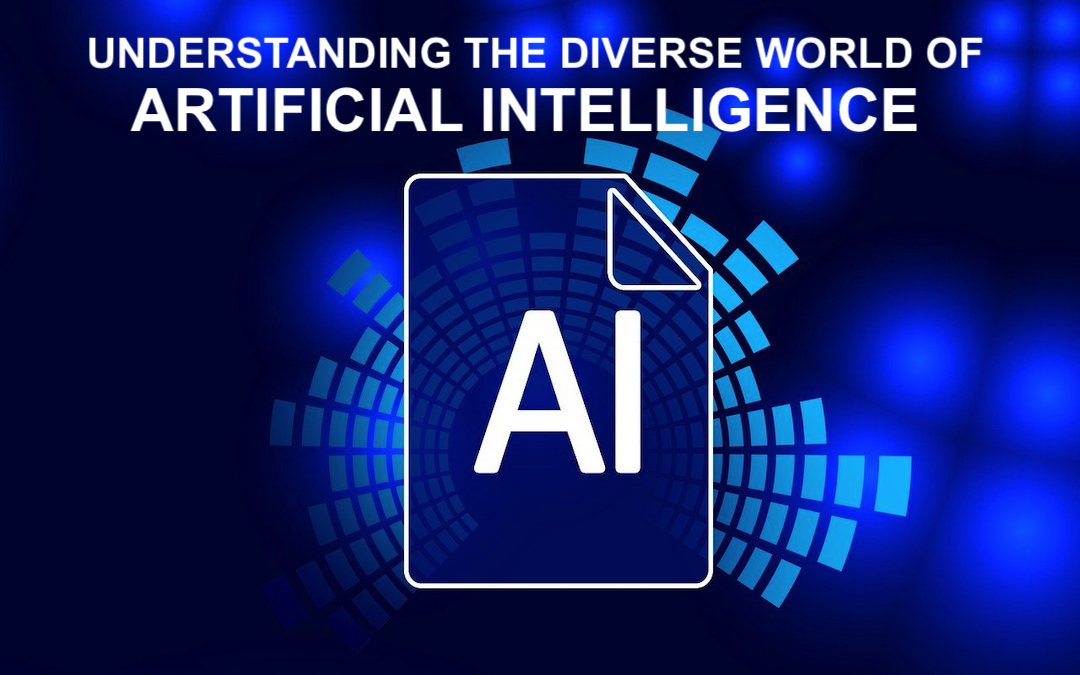
Artificial Intelligence (AI) emerged as a futuristic concept. Nowadays, it has become a vital part of our everyday lives. From virtual assistants to self-driving cars, different types of AI have seamlessly integrated into our lives. Technologies impact various aspects of modern society. Navigating various kinds of AI is required. It helps people be aware of the potential of technology and control its impact on our daily routine.
Artificial Intelligence is the imitation of human thinking processes by machines. These processes include learning, reasoning, and self-correction. AI's journey began in the mid-20th century. Its early developments focused on problem-solving and symbolic methods.
AI systems are categorized based on their capabilities and functionalities. These categories help us understand how these systems operate and the extent of their intelligence. This article categorizes AI-based computer systems. It explains their functions and discusses the potential effects of cyber brains on our future.
Cyber Brains in Daily Life
There is a rise in the usage of artificial intelligence in cybersecurity due to its ability to adapt and learn quickly, especially in the field of personal data protection.
AI editing software leverages machine learning algorithms to enhance images. It can remove backgrounds, apply filters, and perform other specific editing tasks. Thus, photo editing becomes faster and more accessible for professional photographers and casual users alike.
Smart home devices can interpret and react to verbal instructions. People can manage a range of home devices, listen to music, schedule reminders, and organize their agendas. Online shopping websites such as Amazon suggest products by analyzing previous purchases and browsing behavior, improving the overall shopping journey.
Google Maps and Waze offer live traffic information, route recommendations, and predicted travel durations. These applications examine large quantities of data, assisting individuals in steering clear of traffic congestion and discovering the fastest paths to where they need to go.
AI-based financial management applications provide budgeting advice, investment recommendations, and fraud detection. Financial tools analyze spending patterns and offer insights to help users make informed financial decisions.
5 Main Types of Artificial Intelligence
1. Reactive Machines
A reactive machine represents the most basic simulation of the thinking process. This system makes decisions but cannot collect memories. Past experiences cannot be used when performing tasks. This AI operates only a particular input it has at its disposal at the moment. An example is IBM's Deep Blue, a chess player that could not learn from past games.
2. Limited Memory
This AI type can use previous experiences. These systems adjust their responses according to the information observed over time. Self-driving cars are a notable example. They continuously observe their surroundings and make adjustments based on previous encounters with various obstacles and traffic situations. This AI type represents a significant step up from reactive machines due to its ability to learn over time. However, its capabilities are limited to a preliminarily defined scope.
3. Theory of Mind
This type of brain simulator goes beyond basic cognitive tasks. The outstanding feature of the theory of mind is understanding and processing feelings, beliefs, and intentions. Although still in the research phase, this type of AI would be capable of more complex social interactions. For instance, it can possibly be used to develop empathetic virtual assistants or social robots. They have the potential to offer people meaningful communication.
4. Self-aware AI
This is the most advanced form of cyber thinking. It comprehends its own existence, has desires, and has emotions. This type of AI remains hypothetical. It provokes ethical and philosophical discussions. The development of such systems could fundamentally alter the way we perceive technology.
5. ANI, AGI, and ASI
Artificial Narrow Intelligence
What is the most common type of AI used today? It is a so-called weak AI, or Artificial Narrow Intelligence (ANI). This AI type was developed for specific tasks. These systems are highly effective within their defined scope.
Virtual helpers like Siri and Alexa represent some instances of ANI. Recommendation algorithms utilized by streaming platforms like Netflix and search engines like Google are based on comparable algorithms.
Artificial General Intelligence
Also known as strong AI, Artificial General Intelligence (AGI) understands, learns, and applies algorithms for a broad range of tasks. Its intellectual capabilities are comparable to those of a human brain. A hypothetical AI that could seamlessly transition from solving complex mathematical problems to composing music or engaging in philosophical debates would be an example of AGI. Researchers have yet to achieve this cognitive flexibility level.
Artificial Superintelligence
Simply put, Artificial Superintelligence (ASI) is a computer system smarter than a human. An example of ASI would be an AI system that could rapidly advance scientific research, solve global issues such as climate change, and innovate new technologies. It would go beyond the intellectual capabilities of the smartest human minds. Currently, ASI is a theoretical concept. Working on it would raise significant ethical concerns, solving which would require no less time and effort than developing the superintelligence itself.
Conclusion
From reactive machines to the theoretical concept of self-aware AI, each type offers unique insights into the capabilities and future of technologies integrating into our lives. As we continue to learn and develop these technologies, their potential to transform our world remains vast and promising.
Share this post
Leave a comment
All comments are moderated. Spammy and bot submitted comments are deleted. Please submit the comments that are helpful to others, and we'll approve your comments. A comment that includes outbound link will only be approved if the content is relevant to the topic, and has some value to our readers.

Comments (0)
No comment